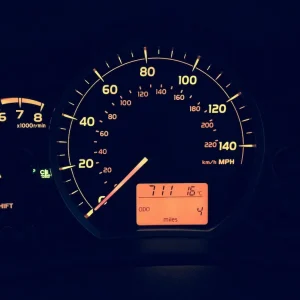Revisions to the sentencing guidelines for magistrates could see punishments for drivers caught speeding go up by a significant amount.
Currently, the maximum fine that can be imposed on a driver for speeding is 100% of their weekly earnings, while the minimum is a £100 fine and the addition of three penalty points to their driving licence. That maximum fine can go up to £2,500 if the offence was committed on the motorway, however.
Under the new sentencing guidelines, which came into force on 24 April, the starting point for a maximum penalty has increased to 150% of the perpetrator’s weekly income. This will be the new band C fine starting point, which actually can range from anywhere between 125% and 175% of the guilty party’s weekly earnings, depending on specific circumstances.
The band C range includes, for example, getting caught doing 41mph or above in a 20mph zone, 51mph and above in a 30mph zone, 66mph in a 40mph zone, all the way up to 101mph and above in a 70mph zone. As well as the fine, anyone caught doing these sorts of speeds will be liable for six penalty points, or disqualification from driving for between seven and 56 days.
Brake, the road safety charity, has welcomed the move, with its campaigns director Gary Rae saying: “Toughening the fines and penalties for speeding is long overdue. As a charity that offers a support service to families bereaved and injured in road crashes, we see every day the consequences of speeding on our roads. I hope that magistrates ensure the new sentences are consistently applied.”
According to the charity’s own research, 40% of drivers break the speed limit in 30mph zones, and police statistics show that excess speed was a contributory factor in 23% of all UK road traffic accidents in 2015.
GEM Motoring Assist has also welcomed the news, with the road safety and breakdown recovery provider’s road safety officer, Neil Worth, saying: “Illegal or inappropriate speeds remain a significant road safety problem. If more people complied with speed limits, there would be fewer deaths and injuries on our roads; it’s as simple as that. We therefore welcome the increase in fines, as we know the enforcement of speed limits plays a vital role in road safety.”
He concluded: “As drivers and riders, we are all responsible for the speeds we choose. No one can tell us to break the speed limit. So we urge every driver and rider to take that responsibility seriously and to play their part in making our roads safer.”





